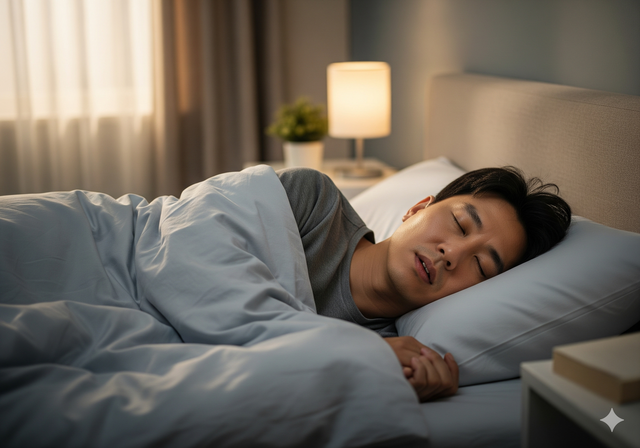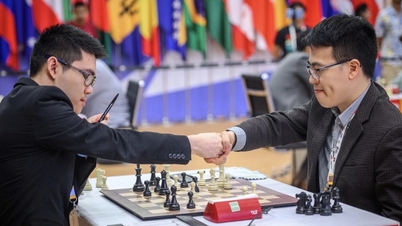Sleep is an indispensable element in any exercise or sports regimen, according to the health website Health .
Ms. Smita Patel, a neurologist in the US, said that getting enough sleep helps the body reduce pain, regenerate strength and prepare for the next training sessions.

Getting enough sleep helps the body reduce pain, regenerate strength and prepare for the next workout session.
Photo: AI
Sleep is essential for muscle recovery
Most adults need 7-9 hours of sleep each night to give their bodies time to rest and recover.
People who regularly train at high intensity or professional athletes need even more than this for optimal performance.
Sleep needs can vary with physical condition and lifestyle, depending on many factors such as exercise level, type of activity, age, nutrition, stress levels, physical condition and general health.
Sleep mechanism helps restore muscles
When you exercise, muscle fibers develop tiny tears, called microtears, which need time to repair in order to build muscle mass and increase strength.
During sleep, the body goes into recovery mode, carrying out a series of important processes that help strengthen muscles.
During deep sleep, the body produces more growth hormone. This is the hormone that helps muscles grow and recover after activity. It also stimulates the hormone IGF-1, which plays an important role in repairing muscle micro-damage.
At the same time, sleep supports protein synthesis, which is the body's conversion of protein from food into new muscle tissue. Without sleep, this synthesis process is reduced in efficiency, making it difficult for the body to recover and grow.
In addition, sleep also helps restore energy sources. During exercise, glycogen stored in the muscles is consumed to provide energy. When sleeping, the body will regenerate glycogen from carbohydrates and nutrients consumed, thereby replenishing energy for the next workout.
Sleep also controls inflammation. During exercise, muscles become temporarily inflamed, causing delayed onset pain. During sleep, the immune system releases substances that help control inflammation, remove waste products from the muscles, and reduce pain.
In addition, during the transition from light to deep sleep, muscles will relax, reducing stress after a day of activity.
Not only does good sleep directly affect your muscles, it also improves concentration, reflexes, and coordination.
Lack of sleep reduces exercise effectiveness
Conversely, if you lack sleep, your body will have difficulty recovering and developing muscles as desired.
Insufficient sleep slows muscle repair and growth, reduces strength and endurance, and increases the risk of injuries such as sprains, strains, and overuse injuries.
The inflammation also becomes more severe, causing prolonged muscle pain.
In addition, people who lack sleep often have slow reaction times, poor coordination and balance.
Source: https://thanhnien.vn/phat-hien-them-vai-tro-cua-giac-ngu-185250906165809895.htm



![[Photo] Prime Minister Pham Minh Chinh receives Lao Minister of Labor and Welfare Phosay Sayasone](https://vphoto.vietnam.vn/thumb/1200x675/vietnam/resource/IMAGE/2025/11/11/1762872028311_dsc-2246-jpg.webp)



![[Photo] Chu Noodles - the essence of rice and sunshine](https://vphoto.vietnam.vn/thumb/1200x675/vietnam/resource/IMAGE/2025/11/11/1762846220477_ndo_tl_7-jpg.webp)























































































![Dong Nai OCOP transition: [Article 3] Linking tourism with OCOP product consumption](https://vphoto.vietnam.vn/thumb/402x226/vietnam/resource/IMAGE/2025/11/10/1762739199309_1324-2740-7_n-162543_981.jpeg)








Comment (0)